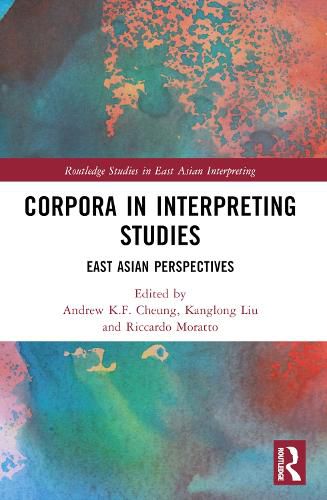Readings Newsletter
Become a Readings Member to make your shopping experience even easier.
Sign in or sign up for free!
You’re not far away from qualifying for FREE standard shipping within Australia
You’ve qualified for FREE standard shipping within Australia
The cart is loading…






Cheung, Liu, Moratto, and their contributors examine how corpora can be effectively harnessed to benefit interpreting practice and research in East Asian settings.
In comparison to the achievements made in the field of corpus- based translation studies, the use of corpora in interpreting is not comparable in terms of scope, methods, and agenda. One of the predicaments that hampers this line of inquiry is the lack of systematic corpora to document spoken language. This issue is even more pronounced when dealing with East Asian languages such as Chinese, Japanese, and Korean, which are typologically different from European languages. As language plays a pivotal role in interpreting research, the use of corpora in interpreting within East Asian contexts has its own distinct characteristics as well as methodological constraints and concerns. However, it also generates new insights and findings that can significantly advance this research field.
A valuable resource for scholars of scholars focusing on corpus interpreting, particularly those dealing with East Asian languages.
$9.00 standard shipping within Australia
FREE standard shipping within Australia for orders over $100.00
Express & International shipping calculated at checkout
Stock availability can be subject to change without notice. We recommend calling the shop or contacting our online team to check availability of low stock items. Please see our Shopping Online page for more details.
Cheung, Liu, Moratto, and their contributors examine how corpora can be effectively harnessed to benefit interpreting practice and research in East Asian settings.
In comparison to the achievements made in the field of corpus- based translation studies, the use of corpora in interpreting is not comparable in terms of scope, methods, and agenda. One of the predicaments that hampers this line of inquiry is the lack of systematic corpora to document spoken language. This issue is even more pronounced when dealing with East Asian languages such as Chinese, Japanese, and Korean, which are typologically different from European languages. As language plays a pivotal role in interpreting research, the use of corpora in interpreting within East Asian contexts has its own distinct characteristics as well as methodological constraints and concerns. However, it also generates new insights and findings that can significantly advance this research field.
A valuable resource for scholars of scholars focusing on corpus interpreting, particularly those dealing with East Asian languages.